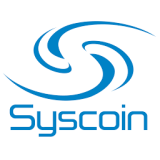Create a Self-Signed Certificate for Apache SSL on CentOS
A self-signed certificate can be used for many things, but in this case it is to provide HTTP over SSL from Apache, HTTPS. In many cases a CA signed certificate is not required – a self signed certificate offers the same level of encryption at no cost if you can live with the warnings (or install the cert in your keystore).
Install ModSSL and OpenSSL
Use yum to get OpenSSL and ModSSL plus dependencies.
yum -y install mod_ssl openssl
Generate the key, certificate signing request, and certificate.
This will generate a 2048 bit RSA key and certificate good for ~10 years (3650 days).
mkdir -p /etc/httpd/ssl cd /etc/httpd/ssl openssl genrsa -out ssl.key 2048 openssl req -new -key ssl.key -out ssl.csr openssl x509 -req -days 3650 -in ssl.csr -signkey ssl.key -out ssl.crt
Use Self-Signed Certificate with Apache.
You can now use the key and crt files in apache, either in the general configuration included by default in /etc/httpd/conf.d/ssl.conf or in a VirtualHost as below.
<VirtualHost *:443> ServerName my.server.com DocumentRoot /var/www/html # Enable SSL and specify the certificate and key SSLEngine on SSLCertificateFile /etc/httpd/ssl/ssl.crt SSLCertificateKeyFile /etc/httpd/ssl/ssl.key # If you are reverse proxying from HTTP to HTTPS make sure to include a header rewrite #Header edit Location ^http: https: </VirtualHost>


































